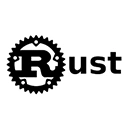The Rust community is known for its inclusivity and support, making it a great place for developers to contribute and collaborate. Contributing to the Rust community can take many forms, from writing code and documentation to helping others and participating in discussions. This guide will explore various ways you can contribute to the Rust community.
1. Contributing to Rust Projects
One of the most direct ways to contribute is by participating in the development of Rust itself or its libraries and tools. You can contribute by fixing bugs, adding features, or improving documentation.
Finding Projects to Contribute To
You can find Rust projects on platforms like GitHub. Look for repositories labeled with "good first issue" or "help wanted" to find beginner-friendly tasks.
Example of Contributing to a Rust Project
# Fork the repository
git clone https://github.com/your-username/rust-project.git
# Create a new branch for your changes
git checkout -b my-feature-branch
# Make your changes and commit them
git add .
git commit -m "Add a new feature"
# Push your changes to your fork
git push origin my-feature-branch
# Create a pull request on GitHub
Explanation of the Example
- In this example, you clone a Rust project repository and create a new branch for your changes.
- After making your changes, you commit them and push the branch to your forked repository.
- Finally, you create a pull request on GitHub to propose your changes to the original project.
2. Writing Documentation
Good documentation is crucial for any programming language or library. You can contribute by improving existing documentation or writing new guides and tutorials.
Example of Improving Documentation
/// This function adds two numbers together.
///
/// # Examples
/// ```
/// let result = add(2, 3);
/// assert_eq!(result, 5);
/// ```
fn add(a: i32, b: i32) -> i32 {
a + b
}
Explanation of the Example
- In this example, we enhance the documentation for the
addfunction by providing a clear description and an example of how to use it. - Contributing to documentation helps users understand how to use the code effectively and can significantly improve the overall quality of the project.
3. Helping Others
Engaging with the community by helping others is a valuable way to contribute. You can answer questions on forums, participate in discussions, and provide mentorship to newcomers.
Where to Help
- Rust Users Forum: Answer questions and provide guidance to other Rust users.
- Stack Overflow: Help others by answering Rust-related questions tagged with
rust. - Discord and IRC: Join the Rust community on Discord or IRC to engage in real-time discussions and offer assistance.
4. Participating in Events
Participating in Rust events, such as meetups, conferences, and hackathons, is a great way to connect with other Rustaceans and contribute to the community.
Examples of Events
- RustConf: An annual conference dedicated to Rust, featuring talks and workshops.
- Local Meetups: Check for local Rust meetups in your area to network and collaborate with other Rust developers.
- Hackathons: Participate in hackathons focused on Rust to work on projects and learn from others.
5. Contributing to Rust's Ecosystem
The Rust ecosystem is vast, with many libraries and tools available. You can contribute by creating your own libraries, improving existing ones, or maintaining crates.
Example of Creating a Library
# Create a new library project
cargo new my_library # Create a new library project
cargo new my_library --lib
# Navigate into the project directory
cd my_library
# Implement a simple function in src/lib.rs
/// This function multiplies two numbers.
///
/// # Examples
/// ```
/// let result = multiply(2, 3);
/// assert_eq!(result, 6);
/// ```
pub fn multiply(a: i32, b: i32) -> i32 {
a * b
}
# Build the library
cargo build
# Publish the library to crates.io
cargo publish
Explanation of the Example
- In this example, we create a new Rust library project using Cargo, Rust's package manager and build system.
- We implement a simple function that multiplies two numbers and provide documentation for it.
- Finally, we build the library and publish it to crates.io, making it available for others to use.
Conclusion
Contributing to the Rust community is a fulfilling way to enhance your skills, connect with others, and help improve the language and its ecosystem. Whether you choose to contribute code, documentation, or support fellow developers, your efforts will be appreciated and can make a significant impact. Get involved today and become a part of the vibrant Rust community!

